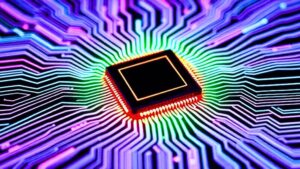Déjà vu is an intriguing and mysterious psychological phenomenon that has fascinated people for generations. Many of us have experienced that bewildering moment when a situation feels strangely familiar, even though we know it is impossible. In this article, we will delve into the phenomenon of déjà vu, examine the theories that attempt to explain it, and consider its role in understanding memory and consciousness.
What is “Déjà Vu”?
The French term “déjà vu” translates to “already seen” in English. It refers to the subjective experience of feeling that a current situation has occurred before, despite knowing it has not. Déjà vu can be fleeting and momentary, or it can last longer, creating the impression of “reliving” a previous moment.
Types of “Déjà Vu”
There are two primary types of déjà vu:
- Psychological Déjà Vu: This is the most common type, where one experiences a strong sense of familiarity with a place, event, or situation, even though they have never encountered it before.
- Temporal Déjà Vu: This occurs when a person feels that a present moment has already happened in the past, creating the sensation of reliving an experience.
Theories Explaining Déjà Vu
Déjà vu has inspired numerous theories seeking to explain this enigmatic sensation. Some of the most common explanations include:
- Memory Processing Theory: Some researchers suggest that déjà vu occurs due to a slight delay in the brain’s information processing. Information may be stored in long-term memory before being processed by short-term memory, creating a false sense of prior experience.
- Repetition Theory: According to this theory, déjà vu results from encountering situations or scenarios that closely resemble past experiences. The brain detects these similarities and mistakenly interprets them as an actual memory.
- Neurotransmission Theory: Some scientists hypothesize that abnormal electrical discharges in the brain, involving neurotransmitters such as dopamine, might trigger déjà vu experiences.
- Simulation Theory: This theory proposes that the brain continuously creates mental simulations of possible future scenarios. When a real-life event closely matches one of these simulations, it triggers a feeling of déjà vu.
Déjà Vu and Memory
Déjà vu raises intriguing questions about the nature of memory. How does the brain store and retrieve information in ways that create this sensation? Some researchers suggest that déjà vu may be linked to temporary disruptions in memory formation or the misfiring of neural pathways.
Déjà Vu in Popular Culture
The concept of déjà vu has captivated writers, filmmakers, and artists for decades. It is frequently explored in movies, TV shows, novels, and songs, often adding an element of mystery and intrigue. In fiction, déjà vu is commonly used to create a supernatural or enigmatic atmosphere, enhancing storytelling with an element of the unknown.
Conclusion: Déjà Vu Remains a Mystery
Despite extensive research and various theories, déjà vu remains largely unexplained. It continues to intrigue scientists and laypeople alike, highlighting the complexity and depth of human consciousness and memory. Whether it results from neurological processes, coincidences, or other yet-to-be-understood phenomena, déjà vu remains a fascinating topic of discussion and exploration.










